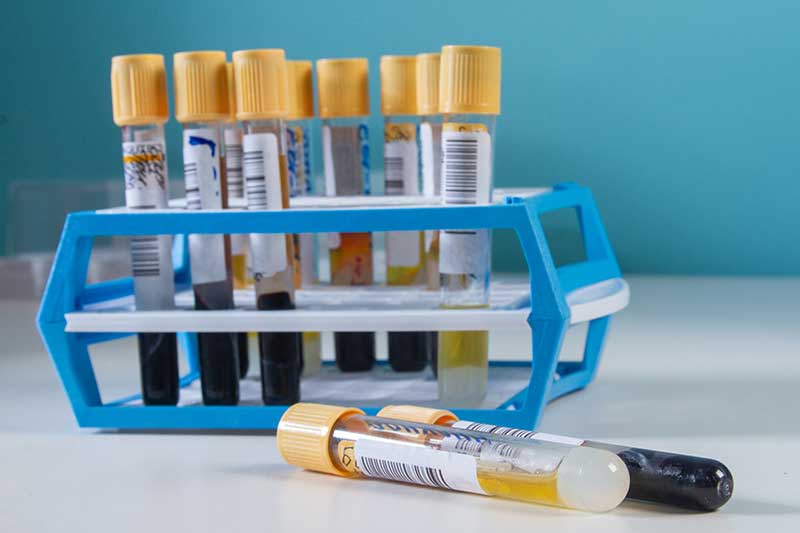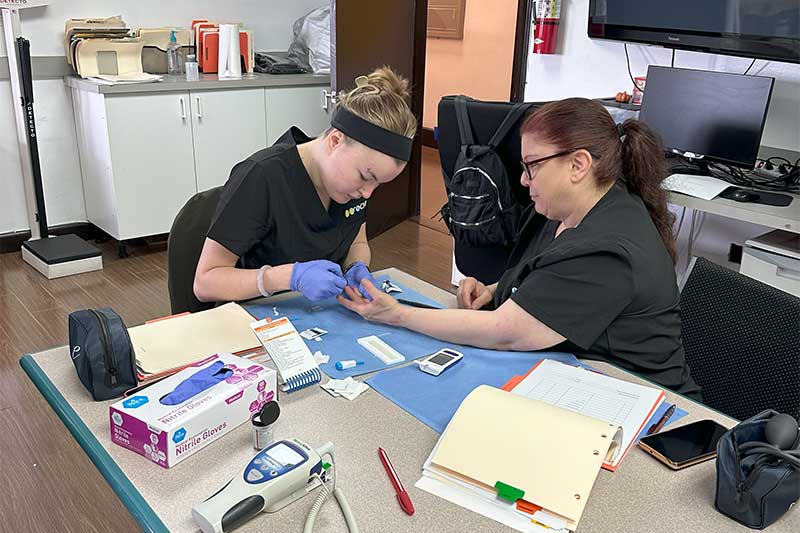Learn about the many places where can a phlebotomy technician work and what qualifications they need to do so. Get all your information here from SOCHI!
Phlebotomy technicians are important healthcare professionals responsible for drawing blood samples from patients for laboratory testing. They play a crucial role in identifying and diagnosing diseases, making them an essential part of the healthcare industry.
While many people assume that phlebotomy technicians only work in labs or clinics, they can find work in a variety of settings. In this blog post, we’ll explore the various work settings for phlebotomy technicians, highlighting the roles and responsibilities associated with each.
The Top 5 Locations Where Can A Phlebotomy Technician Work
Learn which locations are the top places to find work as a phlebotomy technician. Discover five of the best fields for experienced professionals in this educational guide from the Southern California Health Institute (SOCHI).
1. Hospitals:
Hospitals are the most common work settings for phlebotomy technicians. Hospital phlebotomists draw blood from in-patients and outpatients, help transport lab specimens, and often work closely with doctors and nurses during blood transfusions. Hospital phlebotomy technicians might also collect blood from patients in emergency situations, which requires quick thinking and strong decision-making skills.
2. Laboratories:
Phlebotomy technicians that work in laboratories are responsible for handling specimens and preparing them for analysis. This includes labeling, processing, and storing blood samples. They may also perform quality assurance checks to ensure accuracy and reliability of lab results. Lab phlebotomists must have a strong attention to detail and the ability to work independently.
3. Blood Donation Centers:
Blood donation centers are another common work setting for phlebotomy technicians. At these facilities, phlebotomy technicians work to help donors through the blood donation process, including eligibility checks, collection of blood samples, and post-procedure care. Staff adhere to protocols and guidelines that ensure donor safety, which includes regularly checking equipment and following a strict disposal policy.
4. Nursing Homes:
Phlebotomy technicians can also work in nursing homes or care homes and their job duty usually includes drawing blood from elderly patients. Additionally, they would work with physicians and the facility’s nursing team to ensure that all laboratory testing runs smoothly.
5. Mobile Phlebotomy Services:
In mobile phlebotomy, technicians typically work on a contractual basis and travel to various clients’ homes or offices to draw blood samples. This work provides a flexible schedule and is ideal for individuals seeking an independent role. Mobile phlebotomists must be self-sufficient and knowledgeable about equipment, safety protocols, and ensuring sterile conditions even without a controlled lab environment.
How to Become a Phlebotomy Technician?
Becoming a phlebotomy technician is a great career choice for individuals who enjoy hands-on work and helping others. Phlebotomy technicians are responsible for drawing blood from patients for medical testing and donations.
To become a phlebotomy technician, you typically need to complete a training program that covers topics such as human anatomy, medical terminology, and proper blood collection techniques. Many schools and community colleges offer phlebotomy programs that can be completed in as little as three months.
After completing the program, technicians may need to obtain certification from a professional organization such as the National Healthcareer Association or the American Society for Clinical Pathology to start working in this field.
Conclusion:
Phlebotomy technicians play a crucial role in the healthcare system and can work in diverse settings. Whether you are looking for a traditional hospital job or prefer a more flexible work environment, there are phlebotomy careers that will fit your preferences.
Being knowledgeable about the different work settings would allow you to navigate each work terrain efficiently and also help you decide on a phlebotomy career you would love. Whichever path you choose, you can be sure you will always be making a valuable contribution to enhancing quality of healthcare.




